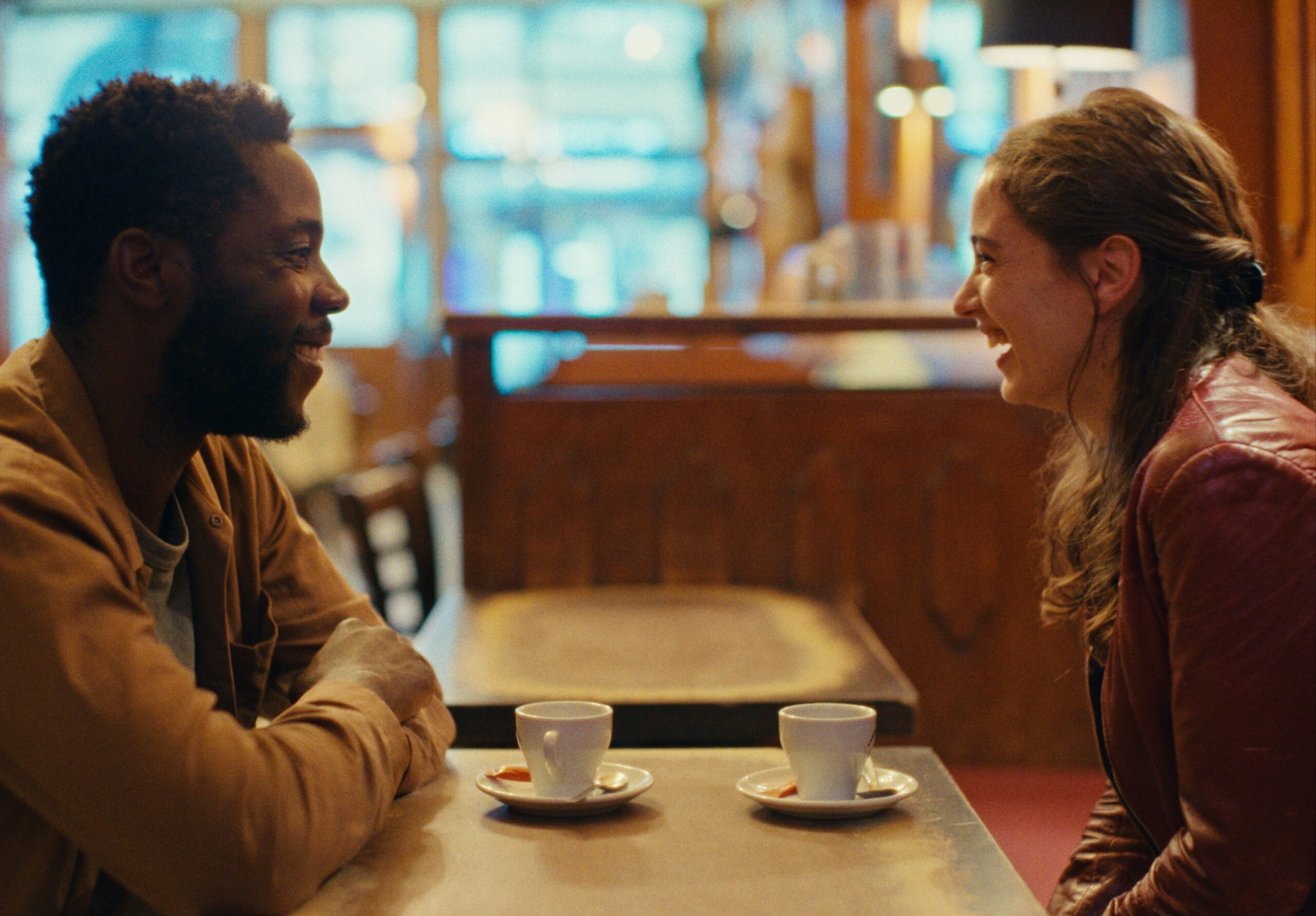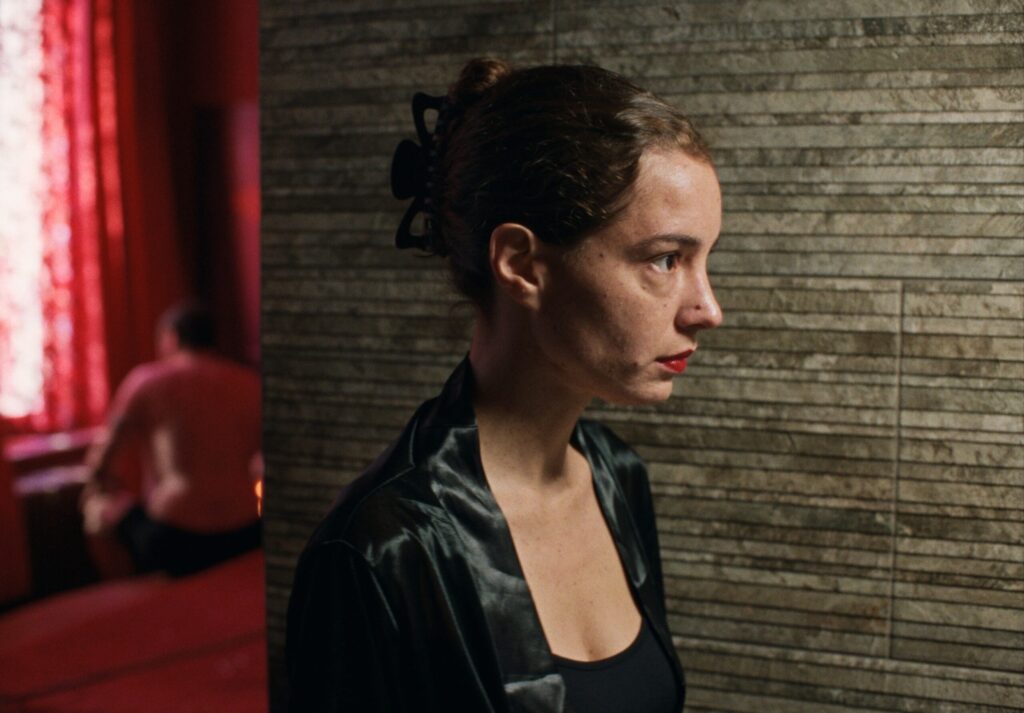‘Kika’ Interview with Alexe Poukine

Another standout discovery in the 2025 Festival de Cannes lineup, in the Semaine de la Critique sidebar, was “Kika,” the first feature-length narrative from French-born, Belgium-based filmmaker Alexe Poukine. Anchored by a riveting performance from Manon Clavel, the film follows a young social worker navigating dire personal and economic circumstances. What begins as a quasi-conventional meet-cute quickly spirals into a gripping story of survival — by any means necessary, even those previously unthinkable to its protagonist.
To describe the film as a “gut-punch drama about the economic and emotional hardship of a social worker (and single mother), as she struggles to recover after a devastating event” would be accurate, but incomplete. The film’s tonal complexity — threading moments of unexpected, dark humor into its bleak premise — elevates it far beyond standard social realism.
Here’s the storyline in a nutshell: Following the sudden disappearance of her partner and facing the possible loss of her job, Kika is left to care for her young daughter with dwindling options. Her desperation is palpable. It’s here that the screenplay lands one of its most subversive punches. An earlier, seemingly throwaway moment returns with unsettling resonance: a young woman casually tells Kika that she earns €100 by selling her soiled underwear. At the time, the confession elicits a knowing smirk. Later, it becomes Kika’s last resort. Awkward and inexperienced, she gives it a try, setting off a strange and dark comedic journey that leads into the murky terrain of sexual fetishes and power dynamics. What unfolds feels at times like a beginner’s guide to BDSM filtered through the eyes of someone who never thought she’d end up there.

I sat down with Alexe Poukine to discuss feminism, deft scripting and the surprising narrative uses of dirty underwear and dildos.
Dana Knight: I felt your film revealed more about human nature than anything else at this year’s Cannes. Perhaps we all need a good beating was one of my takeaways, to put it a bit ironically. What sparked the idea for “Kika,” and why did now feel like the right time for your first narrative feature?
Alexe Poukine: Thank you so much for your words! I’m not sure we all need a good beating — at least certainly not without consent! I think the film suggests that what we all really need is consolation. The idea came to me when I was pregnant with my second child. I had an irrational fear that my partner might die. I had already lived alone with my daughter, and the precariousness of that situation had caused a lot of anxiety. Back then, things were so financially difficult that after selling everything I had, I told myself the only thing I had left to offer was my body. The funding of one of my documentaries spared me from having to take that path — but the idea stayed with me. That’s where “Kika” was born.
As for fiction, I’ve wanted to try it for a long time. I think I finally allowed myself to do it because, as I get older, I’m much less afraid of failure.
DK: Do you feel you had complete creative autonomy in crafting this film or were there interferences or other constraints?
AP: I felt creatively free, overall. My producers trusted me — or at least they seemed to. There were some financial constraints, but I think they worked in our favor. For example, in the original script, Kika and David meet on a train stuck for ten hours due to a suicide. I rewrote the scene to make it cheaper to shoot, and the second idea turned out better.
The script was very dense, and I was asked to cut several scenes to meet the budget. I did, but managed to shoot some of them anyway by finding workarounds, with the complicity of the crew. The first cut was 3 hours and 50 minutes long — we could almost have made two films. The choices I refused to make during writing and shooting, we ended up making in the edit.
DK: In the press notes you provocatively state: “Kika is the woman I imagine I would have been had I not become a filmmaker.” Could you please expand on your challenges as a first-time filmmaker?
AP: I wouldn’t call it a provocation. Kika resembles me a lot — especially her flaws. And her sense of humor too. While writing, I often asked myself: How would I react if I were in her shoes? She’s in survival mode, always running on overdrive. That resonates with me.
For a long time, I hesitated to play the role myself, as I had done in “Palma,” my first medium-length fiction film. But I’m very happy I chose Manon Clavel instead. Early viewers like my editor and friends who saw early cuts were struck by how much she resembled me. I hadn’t noticed, but Manon later told me she’d observed and imitated me a lot.
As for challenges — there were many. Writing took four years. I worked alone for three, and then Thomas Van Zeulen joined for the final year. The script had multiple narrative threads, and I refused to simplify it too much, which made it structurally unusual.
Since I never studied fiction filmmaking formally, I had to learn by doing. I originally wanted a crew of ten, but the script demanded more — we ended up being almost 25. I didn’t know much about many of the crew members’ jobs, so the hardest part was knowing when to trust their expertise and when to assert my vision, especially when their habits clashed with what I wanted. Coming from documentary, I’m used to taking certain liberties — especially around filming permissions — that are less accepted in fiction.
DK: Your previous work included documentary and hybrid forms. What did you discover about directing fiction that surprised you or differed from your experience with nonfiction?
AP: Making documentaries taught me to respect reality, to find a position from which to observe it and reveal its richness. With “Kika,” I learned that sometimes what’s constructed can be more compelling — and even more believable — than reality itself. At first, I resisted changing anything in the locations, for example. We cast real sex workers to play those roles, but during rehearsals, I realized that for characters with emotionally intense arcs, professional actors were often more convincing than people playing themselves. But in everything else — especially post-production and editing — I make no distinction between fiction and documentary. I approach both the same way.
DK: Kika, the protagonist, is an interesting mix of vulnerability and strength. She’s not an easy character to pin down. How did you approach writing her complexity? And did you worry at any point about how audiences would relate to her?
AP: Given Kika’s unconventional path, I of course wondered how audiences would respond. That’s also why it took me two years to find the right actress. I needed someone inherently warm and kind, someone people could easily relate to. At the same time, I knew I had to accept losing part of the audience. We live in a deeply misogynistic society, and not everyone is ready to accept a reversal of gender norms. But I also knew the film would be a kind of relief for those, like me, who long to see films that are hard to summarize, films that speak to/about indescribable parts of our psyche. At one point, I even wanted to call the film “Somewhere Only We Know”.
DK: There’s a lot of humour but also deep insights about human sexuality in the film. The characters are emotionally dense. What surprised you the most when exploring this area of human behaviour? I imagine you read a lot in preparation for this film.
AP: I read and watched a lot, of course. Two documentaries that deeply inspired me were “Passion” by Maja Borg and “Karima” by Clarisse Hahn. I also conducted long interviews with dominatrices and dominators. I participated in several BDSM workshops. What surprised me most — especially in those workshops — was the gentleness. Even though the whole principle involves pain, the environment was incredibly caring. I found these people truly inspiring, particularly in how advanced they are when it comes to consent — especially the idea of consent as something gradual, that can be withdrawn at any moment.
Even though this kind of sexuality was initially far from my own experience, I was touched by their curiosity, the courage to explore such spaces, and the self-esteem it takes to give that exploration room. I was also surprised by how diverse the participants were. There were, for instance, two elderly girlfriends who looked like retired, devout history teachers. Three hours into the workshop, one was leading the other around half-naked on a leash.
DK: Would you say “Kika” is a feminist film, or do you resist such framing? Do you see “Kika” as part of a larger wave of female authorship in European cinema right now?
AP: “Kika” is absolutely a feminist film — because I am a feminist. I must admit I don’t really understand filmmakers who are afraid of being labeled that way. Do they think it’s right or desirable for half of humanity to face systemic discrimination based on gender? I just don’t get it. “Kika” is part of a broader, even global movement, and I’m thrilled to see films that offer an alternative to the male gaze. If I was able to make this film today, it’s thanks to directors who fought to create space for works that don’t take virility as the norm. I think especially of Chantal Akerman in Belgium.
That said, I don’t think being a woman automatically prevents someone from reproducing masculinist tropes, which are still highly valued and rarely challenged. Many gatekeepers still think a “good” female director is one who imitates male directors. Personally, I greatly admire the work of Andrea Arnold, Maren Ade and Valentina Maurel, to name just a few in Europe.
DK: What do you hope the film sparks in audiences, especially those encountering your work for the first time?
AP: I hope it makes them laugh — and moves them too. One of the women in my documentary “That Which Does Not Kill” says at one point: “Suddenly, I was neither crazy nor alone anymore.” I think that’s why I make films: to help viewers feel a little less crazy, and a little less alone.
Regions: Cannes, United States
